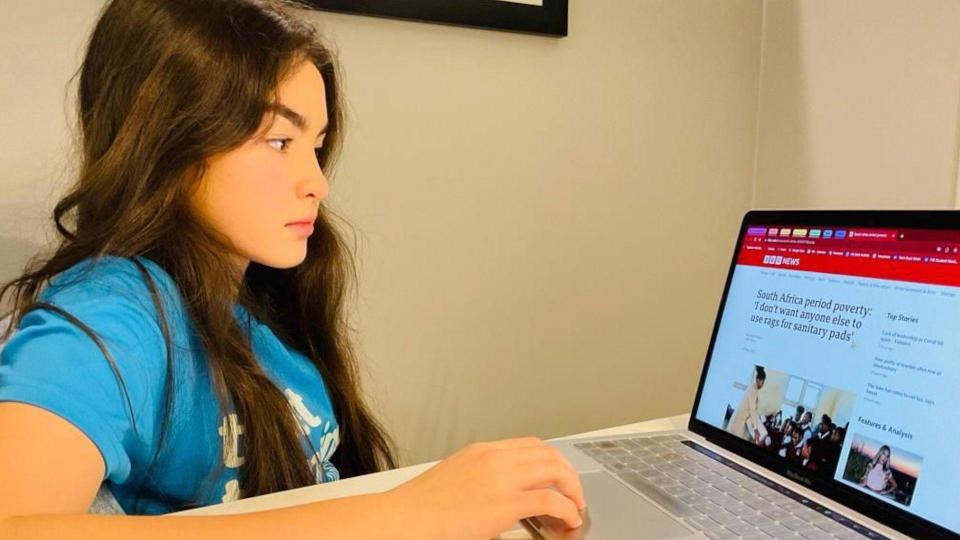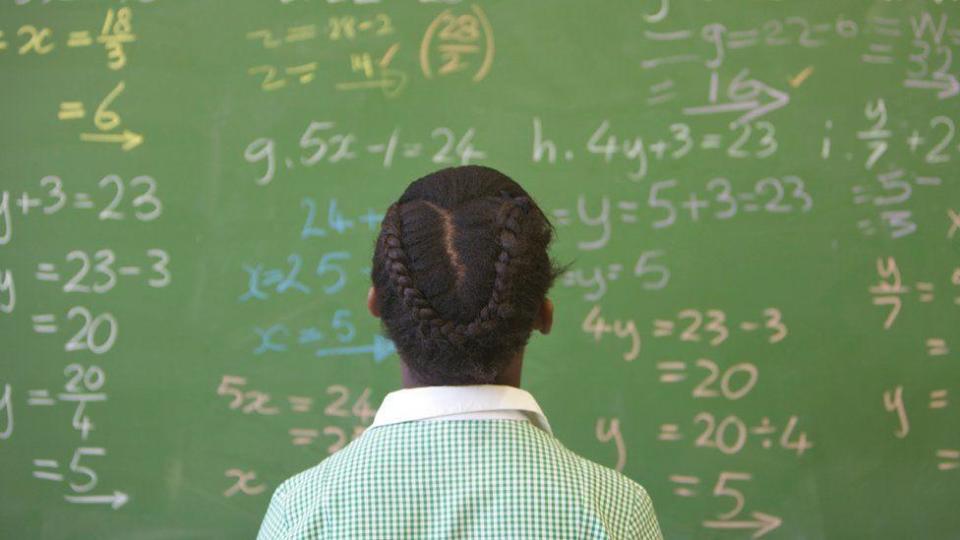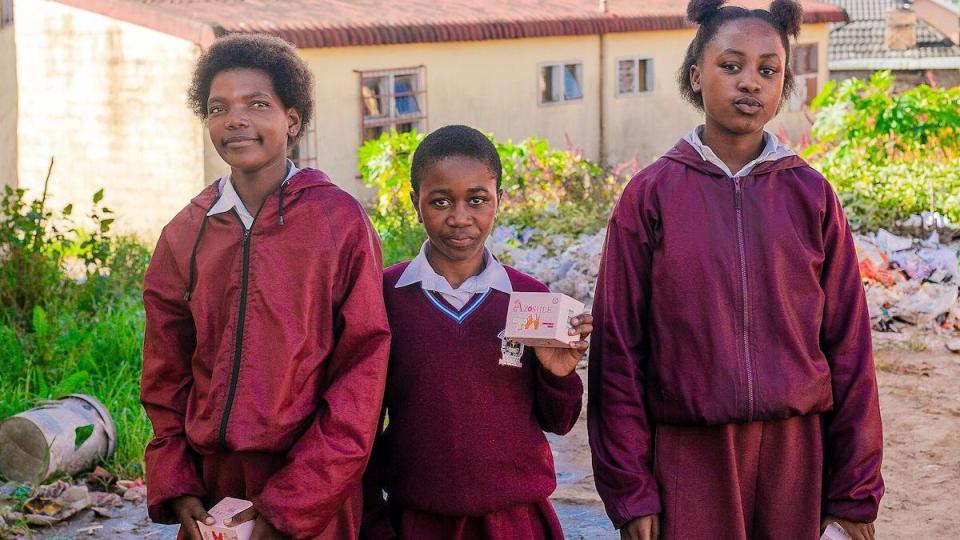A 12-year-old girl in Germany was so moved by the inspiring work of South African period poverty activist Tamara Magwashu that she was able to organize a large charitable donation.
Caity Cutter was moved to do something after being shocked to learn from a BBC article about Ms Magwashu that 30% of girls in South Africa did not attend school during their menstrual period.
Ms Magwashu called Caity’s efforts life-changing.
The story, published a year ago, was about how this young woman, now 28, from the Eastern Cape province of South Africa, was helping girls who could not afford sanitary pads by distributing them for free in schools located in rural and impoverished areas.
Having grown up in a slum, using rags as sanitary pads – and being bullied for doing so – Ms Magwashu was determined to stop other girls in her community from suffering the same fate.
She created her own business to help girls in the country and beyond.
“I made a deep choice within myself that I didn’t want anyone to go through what I went through,” Magwashu told the BBC.
“My goal is to reach all girls in need, so that they have their dignity. Depriving a woman of sanitary products is a violation of her human rights.”
For Caity, this determination was inspiring – but also eye-opening.
“I thought it was really sad that girls my age didn’t have access to clean water, menstrual products and toilets,” she said.

Ms Magwashu explained that her family in Duncan Village, a township near the city of East London, shared a public toilet with around 50 other people.
“It’s crazy to me that we live in a world where people can go to the moon, but others don’t have a bathroom,” Caity said.
His father, Michael Cutter, had been saving money from his job at a biopharmaceutical company for some time and planned to make a charitable donation.
His daughter convinced him that helping Ms. Magwashu’s project was a worthy cause.
It was an overwhelming moment for the South African.
“They donated 500,000 sanitary pads to help girls from marginalized communities. Then other donations went to us, getting a deposit and hiring staff to distribute the pads further,” she told the BBC.
It all went to help Ms Magwashu’s non-profit organisation, Azosule, whose charitable wing provides free sanitary pads to schools in the poorest communities. It also sells more affordable and sustainable sanitary products.
Ms Magwashu negotiated a deal with South African supermarket Makro to stock its sanitary napkins in its stores across the country and in the Democratic Republic of Congo.


It is estimated that around seven million South African girls do not have money to buy sanitary products.
South Africa is just one of many countries facing periodic poverty.
Menstrual poverty affects at least 500 million women and girls worldwide, the World Bank saidleaving them with little access to the facilities they need during menstruation.
In August last year the BBC led a pan-African investigation in its effects across the continent. It was found that women in Ghana who earn a minimum wage spend one in every 7 dollars they earn on sanitary pads.
But it’s not just about the cost and availability of the pillows themselves.
Poverty research group J-Pal Africa analyzed the impact on girls’ education in Madagascar, looking at the lack of knowledge about hygiene practices.
The study included 2,250 students in 140 primary and secondary schools.
One conclusion he reached was that after building adequate washing facilities, as well as providing teacher training and vouchers for free sanitary pads, students’ overall academic skills, memory and attention improved.
Additionally, girls were 17% more likely to advance to the next grade.
Through her interactions with Magwashu, Caity says she also understood that providing financing for menstrual products was “only part of the solution.”
Ms Magwashu also sends teams to schools to educate girls and boys about menstrual hygiene.


Azosule has been a labor of love for Ms Magwashu, a public relations graduate. She saved money from part-time jobs and her student loan to launch it in 2021.
Originally, it did this through what we call “pad drives” – when you load up a vehicle and travel to poor areas to distribute sanitary products.
But now she can do more with a bigger team.
“Therefore [donation] We managed to help more schools and we are in talks with schools in Congo-Brazzaville, where many girls have never seen a sanitary pad,” Magwashu told the BBC.
She hopes that one day this will apply to the entire continent.
Reflecting on Germany’s donation, Magwashu added: “For the first time, I felt seen and heard, because we are talking about someone who comes from a privileged situation and who will not have to go through periods of poverty.
“When I say she completely changed my life, she really did.
“Caity will always be a hero of mine. She made a difference not only in my life, but in the lives of thousands of girls, so that they don’t have to go through what I went through.”
You might also be interested in:





































